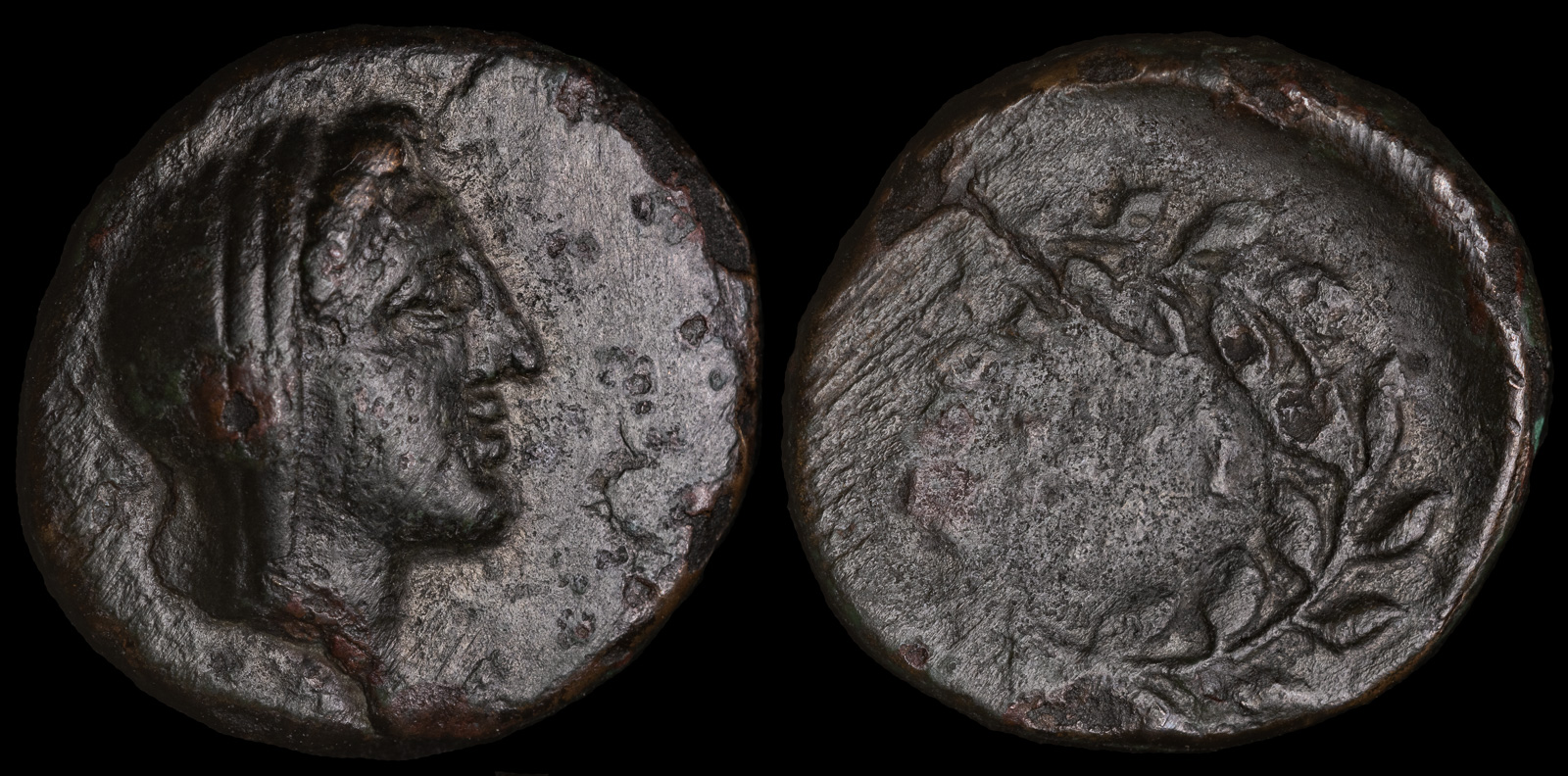
Achaea, Dyme
Circa 300-250 BCE
Æ 2.20g, 16mm, 8h
Veiled head of Demeter to right /
ΔY within wreath with ties to left
BCD Peloponnesos 476; BMC 2 = Traité 834; SNG Copenhagen 145; HGC 5, 37 corr. (BCD reference)
Ex Classical Numismatic Group inventory
Ex BCD Collection (not in previous BCD sales)
Dyme as an important city in Achaia and received its name from being the western-most city of the region. It is a very ancient city, with its walls that stand today dating back to 1300 BCE. These are an interesting tourist attraction that can be seen for some distance and sadly I wasn’t aware of them when I was in the Peloponnese.
Dyme was the birthplace of the athlete Oebotas, who was the first Achaian to win at the Olympic Games. That was a major deal, but after the games he was given no honors and became so upset that he cursed the future entrants from Achaia. So, in some ways it was like the “Curse of the Bambino”. The curse held for a very long time.
After Alexander the Great, Kassander took control of the city. However, in 314 BCE one of Antigonos I Monophthalmos’ generals pushed him out. Numerous battles occurred in the area for the next 150 years.
Oibotas of Dyme wins the stadion race at the Olympic games. He was not honored by the Achaians and thus the Achaians were cursed to not win at the Olympics for years.
Kassander driven out of Dyme by a general of Antigonos Monophthalmos.
Patrai and Dyme found the Achaian League.
The Spartans under King Kleomenes III defeat the Achaian League under Aratos of Sikyon (and including Argos and Megalopolis) in the Battle of Dyme.
The Roman general Sulpicius sacks Dyme and sells its population as slaves.
The Roman proconsul Q. Fabious Maximus quells an uprising in Dyme against Roman rule.
Julius Caesar refounds Corinth as a Roman colony, Colonia Laus Iulia Corinthiensis. Dyme is also refounded as a colony.